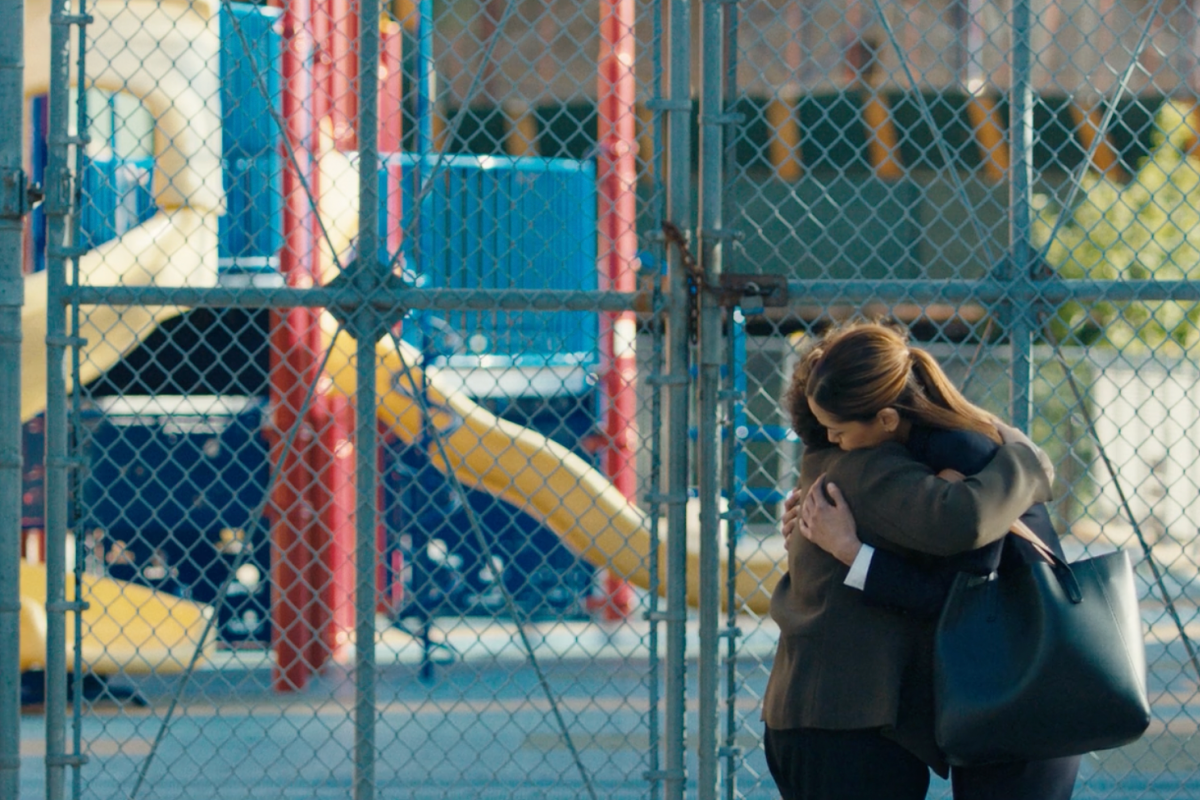

Sol Miranda, left, and Victoria Cartagena star as mother and daughter in writer-director Daniel Poliner’s ‘Come Find Me’ (Revelation Films)
Come Find Me was made for its two stars, Sol Miranda and Victoria Cartagena. Or so says the film’s writer and director, Daniel Poliner, a longtime collaborator of Miranda’s.
The two Boricuas play Gloria and Christina, a mother-daughter pair who yo-yo in and out of each other’s lives as they struggle romantically, personally, and professionally.
That may appear an unlikely subject for Poliner, a white Jewish guy, to take up —and perhaps it is— but that doesn’t make the film less compelling.
“The origin for me was actually just listening to Sol and how Sol speaks and trying to capture a vehicle for her originally,” he recently told Latino Rebels
He also drew on his wife’s experience as an administrator at a public school, like where Miranda’s Gloria works. For Cartagena’s Christina, he relied on his own journals, particularly when she confesses to her mother that she’s unhappy in her partner-track law job.
But, as Miranda said, Come Find Me is really “a love story. And this other love story happens to be very particular and very universal.”
The film is divided into halves, beginning with the daughter’s attempt to figure out who she is early in her career and how her struggle relates to her over-worrying mother.
Then we switch to Gloria’s perspective, as she nears retirement and her daughter’s wedding, reflecting back on the choices she’s made and the consequences they had.
“Once you see your parent as someone who’s just doing the best that they could, it helps me rewrite the past,” shared Cartagena, getting to the heart of the film.


Sol Miranda, left, and Victoria Cartagena star as mother and daughter in writer-director Daniel Poliner’s ‘Come Find Me’ (Revelation Films)
Come Find Me skips around in time and plays with reality as it explores the ways that misunderstandings pile up in lifelong relationships. It’s a film about failing those you love, but one that approaches each of its imperfect protagonists with a lot of empathy.
Yes, Gloria pushes Christina away, sending her to a better school than the one she worked at, despite her daughter wanting to stay closer to home.
Yes, as a grown-up, Christina keeps an emotional distance from her mother, perhaps wary of being rejected again, perhaps trying to be worthy of her mother’s continued sacrifices for her.
But this is not an abusive pair. There’s no denigrating language like in Real Women Have Curves or controlling behavior like in Like Water for Chocolate. Unlike in the iconic relationships depicted in those movies, there’s a fundamental level of respect between Gloria and Christina, in addition to love.
But the love and respect still don’t make it easy for mother and daughter. For one, both Gloria and Christina are fighting to make it as professionals in a world that assumes Latinas will never reach such heights.
“This is a different immigrant story, where they have achieved, they have climbed that pyramid,” Miranda explained, “But then, at the same time, they still feel invisible. They don’t feel they belong. They still feel every time they have to work harder than anybody else.”
And it’s this nuance that makes Come Find Me so different from other Latinx stories—and, of course, by its very existence, different than so much of what Hollywood puts out. It’s a film that takes seriously the bond between mother and daughter, probing the intricacies of pleasing and rebelling, achieving and disappointing.
It is also a film about joy—finding it, keeping it, treasuring it. There’s a light motif in the film with both Christina and Gloria sometimes shining from their chests, which, for Cartagena, symbolizes that “we have the answers within.”


‘Come Find Me’ (Revelation Films)
“For our culture, that no matter how educated, feels invisible, like they don’t belong… this film is to them,” said Miranda, who sees its message as encouraging you to “keep doing your thing. Be happy, have faith, and just keep doing it. You don’t ask for permission… You just have to do it.”
For Poliner’s part, he hopes that audiences, regardless of their identities, can see themselves in “these two amazing characters, played by Sol and Victoria [with] intelligence, poise, and just a lot of humanity.” He even shared that, during a recent viewing with his wife, they both started crying.
And that’s the thing about Come Find Me: It’s making the case that Latinas’ experiences are just as compelling, relatable, and varied as anyone else’s. And it’s doing it by getting to something essential about mothers and daughters, parents and kids, the ways we love each other, the ways we fail to, and the joy and heartbreak in forever being imperfect people in an imperfect world.
Come Find Me appears in theaters and on demand Friday, January 13.
***
A writer and activist, Cristina Escobar is the co-founder of latinamedia.co, uplifting Latina and gender non-conforming Latinx perspectives in media. She’s a member of the Latino Entertainment Journalists Association and writes at the intersection of race, gender, and pop culture. Twitter: @cescobarandrade


